Annual Report 2023
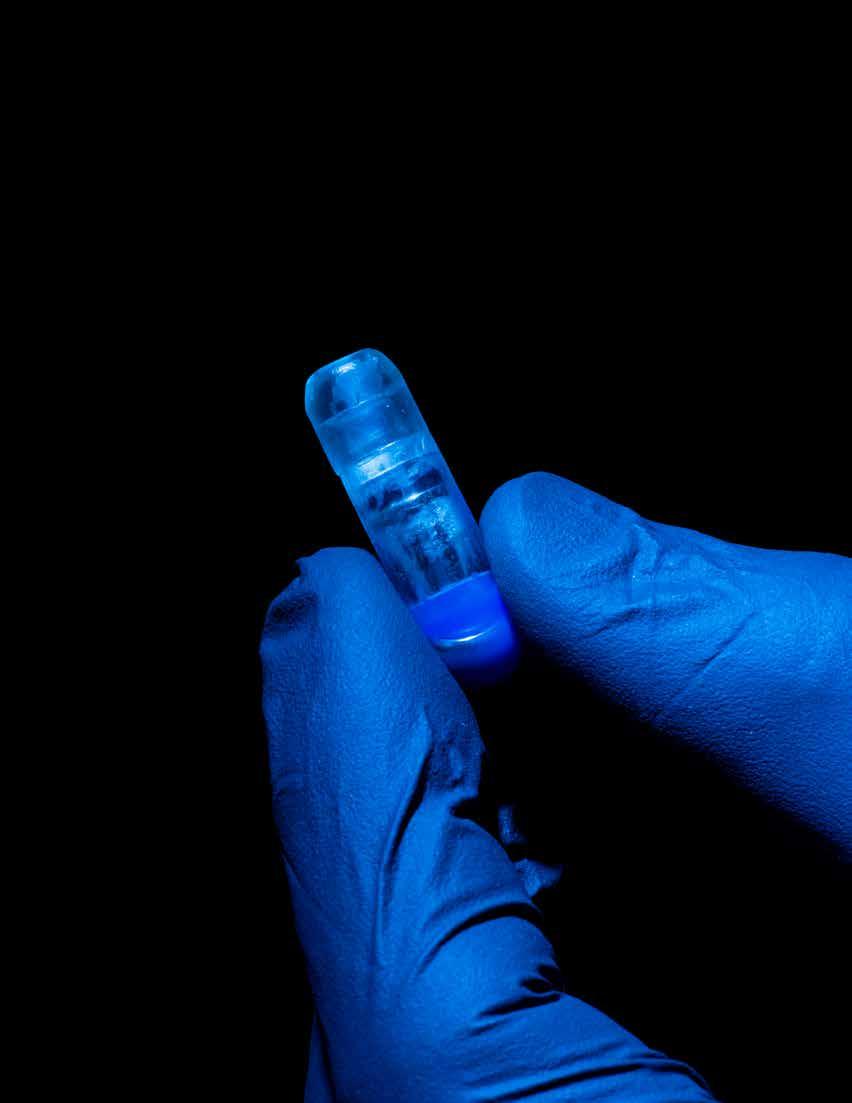
On the cover: In Tufts Nano Lab, Professor Sameer Sonkusale and a team of researchers work across disciplines to develop flexible bioelectronics, biomedical device circuits and systems, nanoscale sensors, lab-on-chip micro systems, and point of care diagnostics. In our cover shot, a graduate student researcher demonstrates 3D-printed pills developed in the lab. The pills are the first known working device capable of non-invasively and accurately assessing the profile of bacterial species inhabiting any stage of the gastrointestinal tract.
Inside front cover:
Students in lecturer Brandon Stafford’s Design for Fabrication course undertook the challenge of building human-operated cranes. Students used their cranes to lift one another 30 inches from the lower patio to the upper patio outside the Science and Engineering Complex. Criteria for the project included any student being able to operate the crane regardless of their strength or size.

Principal photography: Anna Miller, Alonso Nichols, Jake Belcher, and Kelvin Ma for Tufts Photography
Note: All data in this report accurate as of August 2023.
Table of Contents Selected Faculty Achievements 2 Selected Student and Alumni Achievements 4 Diversity, Equity, Inclusion, and Justice 5 Global, Undergraduate, and Graduate Education 6 Selected Research Highlights 8 Faculty Recruitment 11 Advancement and Outreach 12 Highlights from Centers and Institutes 13 Infrastructure Development 16 Inspirational Gifts 17
Dear School of Engineering community and colleagues,
Welcome to the end of the 2022-23 academic year at the Tufts University School of Engineering. This annual report marks the end of my first year as Dean after serving in the role of Dean Ad Interim. Tufts places high value on the importance of lifelong learning, and I appreciate that both as a School leader and as a professor. Thank you to our faculty, staff, and students. Your hard work and dedication sustained innovation and excellence in a highly successful year.
As a School, we continued to foster diversity of background and thought in every aspect of our work and of our community. The Tufts Academic Support System for Engineering Learning and the Access for Computing Equity program both launched in 2022 and offered funded summer learning opportunities to broaden the on-ramp for students. Research in learning science has led to meaningful change in our engineering curriculum as well as in the broader world. Supported by a grant from the National Science Foundation (NSF), the Justice-based Engineering and Data Science Initiative introduced a focus on the social impact of engineering decisions into the Introduction to Computing for Engineering course. Associate Professor Valencia Koomson’s work on skin pigmentation dependent bias in the functioning of pulse oximeters was featured in national publications like Inverse, STAT, and Matter of Fact with Soledad O’Brien.
Our faculty were recognized nationally and internationally for exceptional contributions to their fields. Professor and Dean of Graduate Education Karen Panetta was named to the US National Academy of Engineering, one of the foremost honors available to engineers, and to the European Academy of Sciences and Arts. Assistant Professors Liping Liu, Jivko Sinapov, and Brian Timko received prestigious NSF CAREER Awards to fund their research.
With another record year in the books for undergraduate admissions — the School of Engineering saw an increase in undergraduate applications of 55% over three years ago — and preliminary numbers for fall 2023 graduate admissions suggesting a banner year as well, we are welcoming a whole new generation of talented Jumbos. Eleven dynamic new faculty members are joining the School in academic year 2023-24, bringing expertise in areas like trusted artificial intelligence, computational complexity, electrochemistry, resilient geotechnical systems, and novel semiconductor nanostructures.
It’s an exciting time to be at the School of Engineering. For the eighth year in a row, our faculty have set a new School record for research expenditures. Our Advancement team achieved eight-figure philanthropic support for the School for the sixth year in a row and closed the Brighter World campaign by raising more than $164 million to support the School’s mission-critical work. With the opening of the new Medford/Tufts MBTA station capping the Green Line Extension this year, we are more connected than ever to all that Boston has to offer. On an international level, we are looking forward to exploring new collaborations with the University of Pavia in Italy and to continuing to foster study abroad and other global experiences for our students.
The future of the School, and of Tufts, is brighter than ever. We are deeply grateful to outgoing President Anthony Monaco for his 12 years of principled and transformative leadership, and look forward to working with Tufts’ new President Sunil Kumar, who will hold a tenured faculty appointment in the Department of Electrical and Computer Engineering. My sincere thanks to all of you in the School of Engineering community for the tremendous accomplishments of this past year and for your partnership in the exciting times ahead.
Sincerely,
Kyongbum Lee Dean, Tufts School of Engineering Karol Family Professor
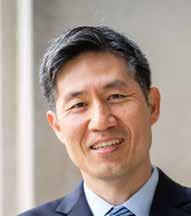

1 engineering.tufts.edu
Dean Kyongbum Lee
Selected Faculty Achievements
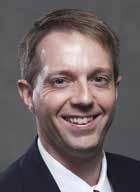
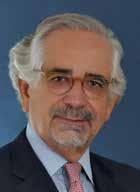
Tufts School of Engineering faculty were recognized this year for outstanding achievements in research and teaching, and for their singular contributions to their disciplines. Professor and Dean of Graduate Education
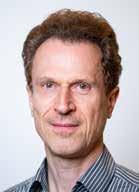
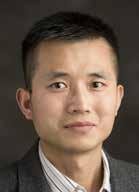
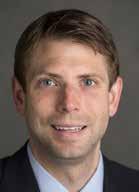
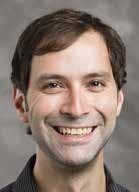
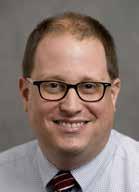
Karen Panetta of the Department of Electrical and Computer Engineering (ECE) was elected to the US National Academy of Engineering, which is one of the foremost professional distinctions in engineering. She was also named to the European Academy of Sciences and Arts and received the 2022 Institute of Electrical and Electronics Engineers (IEEE) Eta Kappa Nu Distinguished Service Award. Professor Lenore Cowen of the Department of Computer Science (CS) was named a Fellow of the Society for Industrial and Applied Mathematics and a Fellow of the International Society for Computational Biology. Assistant Professors Liping Liu (CS), Jivko Sinapov (CS), and Brian Timko, of the Department of Biomedical Engineering (BME), received National Science Foundation CAREER Awards.
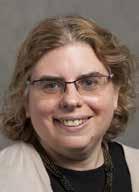
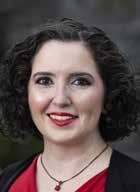
Associate Professor Ayse Asatekin of the Department of Chemical and Biological Engineering (ChBE) was named a Senior Member of the National Academy of Inventors. Professor Matthias Scheutz (CS) was elected a Fellow of the Association for the Advancement of Artificial Intelligence and was also appointed the Karol Family Applied Technology Professor. Associate Professor Robert White of the Department of Mechanical Engineering (ME) was elected a Fellow of the Acoustical Society of America and Professor Eric Miller (ECE) was named a Fellow of the Asia Pacific Artificial Intelligence Association. Professor Emeritus Christos Georgakis (ChBE), who retired this year, received the American Institute of Chemical Engineers Computing and Systems Technology Division Distinguished Service Award.
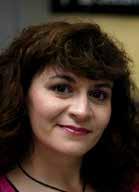 Ayse Asatekin
Karen Panetta
Eric Miller
Jivko Sinapov
Christos Georgakis
Brian Timko
Robert White
Liping Liu
Matthias Scheutz
Ayse Asatekin
Karen Panetta
Eric Miller
Jivko Sinapov
Christos Georgakis
Brian Timko
Robert White
Liping Liu
Matthias Scheutz
2 2023 Annual Report | School of Engineering
Lenore Cowen
Professor Irene Georgakoudi (BME) and Karol Family Applied Technology Professor Matthias Scheutz (CS) received the Tufts Bright Light Award. Research Professor Jack Germaine of the Department of Civil and Environmental Engineering (CEE) was recognized with an Honorary Member Award by the Boston section of the American Society of Civil Engineers (ASCE). Professor Emeritus Steven Chapra (CEE) was elected a Distinguished Member of the ASCE, the highest honor awarded by the organization.
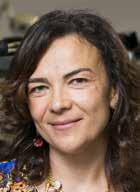
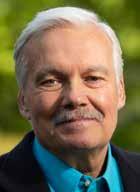
Professor Jeffrey Hopwood (ECE) and Professor of the Practice Ronald Lasser (ECE) were honored by Tufts University awards for teaching and advising. Hopwood received the Seymour Simches Award for Distinguished Teaching and Advising, while Lasser received the Henry and Madeline Fischer Award. Assistant Professor Srivalleesha Mallidi (BME) was recognized with the School of Engineering Faculty Teaching and Mentoring Award. Bright Futures Assistant Professor James Van Deventer (ChBE) received the Tufts Graduate Student Council Award for Outstanding Faculty Contribution to Graduate Studies.
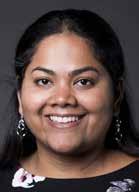
Professor Matthew Panzer (ChBE) was appointed Dean of Research for Tufts School of Engineering. Associate professors Remco Chang (CS) and Chris Swan (CEE) were promoted to full professor. Assistant professors Prashant Deshlahra (ChBE), Jonathan Lamontagne (CEE), and Madeleine Oudin (BME) were promoted to associate professor and received tenure. These promotion and tenure appointments are effective September 2023.
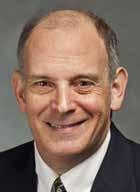


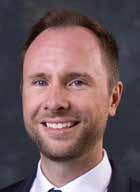
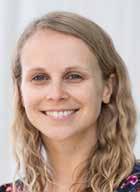
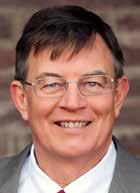
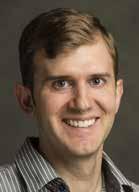
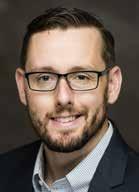
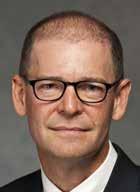
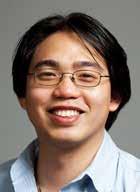 Remco Chang
Jeffrey Hopwood
Jonathan Lamontagne
James Van Deventer
Jack Germaine
Madeleine Oudin
Matthew Panzer
Steven Chapra
Prashant Deshlahra
Srivalleesha Mallidi
Irene Georgakoudi
Chris Swan
Remco Chang
Jeffrey Hopwood
Jonathan Lamontagne
James Van Deventer
Jack Germaine
Madeleine Oudin
Matthew Panzer
Steven Chapra
Prashant Deshlahra
Srivalleesha Mallidi
Irene Georgakoudi
Chris Swan
3 engineering.tufts.edu
Ronald Lasser
Selected Student and Alumni Achievements
Tufts engineering students and alumni are changing the world through service, research, careers in industry, and more.
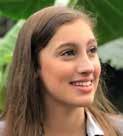
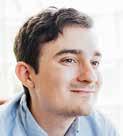
Students: A Tufts team including Ege Cogulu (ME), postdoctoral scholar Ruben Del Rio Ruiz (ECE), and Cihan Asci (ECE) won first prize in the first-ever MassRobotics Form and Function Challenge with a robotic pill that collects gut microbiome samples. Audrey Dutcher, Meg Radke, Sanjana Vissapragada (all BME), Drew Cohen, Hudson Ramirez (both ECE), and Ege Cogulu (ME) received Summer Scholars funding to pursue summer research projects.
Teaming up with LEGO Education, Paul Galvan (ME) and Research Associate Professor and Tufts alum Ethan Danahy (CEEO) designed and built egg-decorating robots for the annual White House Egg Roll in 2023, where they served 35,000 guests. A Tufts team that included Amanda Lemire (ME) as first author won the best poster award at the North American Conference on Molecular Beam Epitaxy. Hannah Magoon (ECE) and Haneen Abderrazzaq (CS) were named Fellows in the 2023 National Science Foundation Graduate Research Fellowship Program.
Monsurat Olaosebikan (CS) received the Doctoral Consortium Best Presentation Award at the 2022 IEEE Conference on Virtual Reality and 3D User Interfaces. Enrique Ernesto Rodriguez (BME) and Briana Lino (ChBE) were honored with Tufts 2023 Presidential Awards for Civic Life, the highest recognition for service, leadership, and civic engagement conferred by Tufts University. Olivia Calkins (ChBE) was named a 2023 Goldwater Scholar by the Barry Goldwater Scholarship and Excellence in Education Foundation.
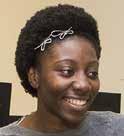
Alumni: Glenn Bell (CEE) was elected to the National Academy of Construction. Six alumni — Thomas Coons (ME), Emily DeWolf (ChBE), Jenna Fromer (ChBE), Harris Hardiman-Mostow (ME), Elijah Martin (ChBE), and Derek Egolf (CS) — were named Fellows in the 2023 NSF Graduate Research Fellowship Program. Steven Moysey (TGI) and Sampathkumar Veeraraghavan (ECE) were each honored with School of Engineering Outstanding Career Achievement Awards.
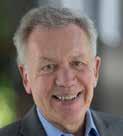
Betsy Kirtland (CEE) was named an ASCE New Face of Civil Engineering Professionals. Deborah Meshulam (ChBE) addressed the Tufts School of Engineering Graduate Programs Ceremony as the keynote speaker and received a Tufts Dean’s Medal. Eric Pheifer (CEE) was named a top young professional of 2023 by Engineering News Record California
Alex Rappaport (CEE, TGI) and Natalie Rubio (BME) were named to one of Forbes’ prestigious 30 Under 30 lists. Mandy Wang (ChBE) received a highly competitive Fulbright Scholarship, which supports recently graduated undergraduates and current graduate students to teach or undertake research in a foreign country. As a result of his significant contributions to the data privacy space, Jonathan Wilde (CS) was named a 2023 Data Privacy Rising Star by data privacy company Privado.
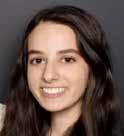 Haneen Abderrazzaq
Monsurat Olaosebikan
Jonathan Wilde
Glenn Bell
Haneen Abderrazzaq
Monsurat Olaosebikan
Jonathan Wilde
Glenn Bell
4 2023 Annual Report | School of Engineering
Hannah Magoon
Diversity, Equity, Inclusion, and Justice
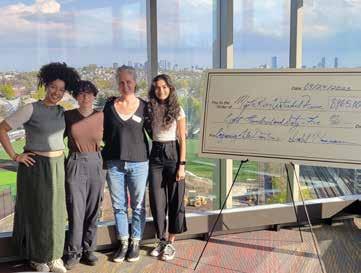
The School of Engineering seeks to champion diversity, equity, inclusion, and justice (DEIJ) through curricular, research, and service efforts at Tufts and in our surrounding communities. This year the School hosted two DEIJ Colloquia featuring alumni Eleanor Allen, Shelley Woods Whiting, and Kristen Ransom, and Darryl Pines, President of the University of Maryland. The Colloquia were complemented by other events organized by Professor Chris Swan, Dean of Undergraduate Education for the School, and Mafalda Gueta, Associate Director of Diversity and Inclusion Programs, including a talk with Assistant Professor Kelly Cross of Georgia Tech.
In addition to fostering long-running programs like Bridge to Engineering Success at Tufts (BEST), offered through the Tufts Center for STEM Diversity (CSD), the School launched several new student support programs this year. Tufts Academic Support System for Engineering Learning (TASSEL) was piloted to provide a summer learning experience for incoming first-year students to refresh the mathematical skills needed to complete the introductory courses in calculus and physics at Tufts. The Department of Computer Science and the CSD offered the Access for Computing Equity (ACE++) program for the first time during the summer of 2022, giving students the opportunity to take core CS courses over the summer while participating in professional development activities. Fifteen students participated in the program in summer 2023, up from 12 students last year.
The School of Engineering continued to embed its DEIJ work within academic departments through DEIJ committees and boards while engaging in university-wide groups too, like the Tufts University Cabinet on Diversity, Equity, and Inclusion. This year the School launched a comprehensive new website dedicated to its DEIJ work — learn more at engineering.tufts.edu/deij

Engineering student life
Eight student groups were awarded Dean’s Fund Awards this year. Projects included Women in Computer Science’s work supporting networking opportunities for women and nonbinary individuals, and an effort by Engineers Without Borders to support a water development project for a village in Malawi. The Engineering Student Council hosted the first Engineering Gala and donated the proceeds from ticket sales to the Mystic River Watershed Association to support its efforts to clean and sustain the local Mystic River.
5 engineering.tufts.edu
Global, Undergraduate, and Graduate Education
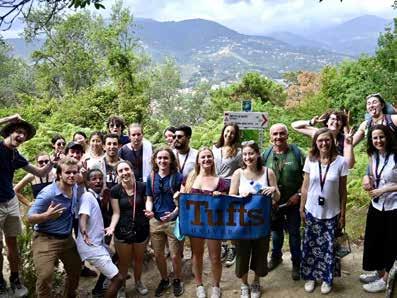
Global education: Tufts Global Education (TGE) provides transformative international learning opportunities for students in the School of Engineering and the School of Arts and Sciences. This year, 61 engineering majors studied abroad through summer and academic year programs. Now in its second year, the Tufts in Pavia program will bring together 25 student participants to study data science, computer science, and Italian language in Italy.
In October 2022, the Tufts@BNU program team received a Tufts Distinction Award for its extraordinary accomplishments in leadership, respect for diverse perspectives, and support for inclusion. The Tufts in Madrid program won the 2022 Excellence in Diversity & Inclusion International Education Award for Student Engagement and Support.
Undergraduate education: The compositional diversity of the engineering undergraduate class continued to expand. Currently, US students of color make up over 40% of the total engineering student body. This year undergraduate programs received a record-breaking 7,085 applications — up more than 55% from three years ago. The Class of 2027 is comprised of 47% women, 48% US citizens who are people of color, 9% international students, and 13% first-generation college students. Need-based financial aid remains an important part of the School’s undergraduate admissions resources, with 43% of the admitted class receiving a Tufts grant.
Graduate education: The School of Engineering received 2,824 applications for graduate programs that started in the fall semester of 2022, reflecting an increase in MS applications and decrease in PhD applications as compared to Fall 2021. Preliminary numbers for Fall 2023 indicate a record year at the MS and PhD level in both applications and intent to enroll. This year, the School planned the launch of new MS and certificate offerings in a number of areas, including biophotonics and technology management and leadership.
Undergraduate Applications
3000 3800 4600 5400 6200 7000 2022-23 2021-22 2020-21 2019-20 2018-19 2017-18 2016-17 2015-16
Number of applications Academic year
6 2023 Annual Report | School of Engineering
Students take a hike during the Tufts in Pavia summer program.
Graduate Applications
Enrollment and Degrees Awarded
1First majors, August 2022 to May 2023. Second majors and minors are not included.
*For BS programs, Civil Engineering and Environmental Engineering are two separate degrees. For graduate degrees, Civil and Environmental Engineering is one program. **Joint degree program. Students are only counted once for the sake of this chart but are also assigned to a second department in the School of Engineering, the School of Arts and
or The Fletcher School, depending on program.
***For BS and MS programs, Electrical Engineering and Computer Engineering are two separate degrees. For PhD, Electrical and Computer Engineering is one degree.
2022-23 Enrollment Engineering Degrees Granted1 Engineering Program BS MS PhD BS MS PhD Architectural Studies 6 0 Bioengineering 28 14 Biomedical Engineering 184 46 39 49 19 8 Biotechnology Engineering 12 3 Chemical Engineering 101 7 18 28 2 1 Civil Engineering 84 26 Civil and Environmental Engineering* 23 28 9 4 Cognitive Science** 5 0 Computer Engineering 51 12 9 5 Computer Science (On Campus) 311 139 79 47 62 6 Computer Science (Online) 61 3 Computer Science (from School of Arts and Sciences) 353 130 Cybersecurity and Public Policy** 19 10 Data Science (On Campus) 55 33 16 35 Data Science (Online) 23 0 Electrical Engineering 68 33 20 29 Electrical and Computer Engineering*** 33 6 Engineering Management 136 82 Engineering Physics 15 3 Engineering Psychology (from School of Arts and Sciences) 108 31 Engineering Science 0 0 Environmental Engineering 52 12 Environmental Health 5 2 Human Factors Engineering 62 46 21 19 Human-Robot Interaction** 18 7 8 1 Innovation and Management 45 37 Materials Science and Engineering** 7 14 2 1 Mechanical Engineering 285 47 26 79 30 5 Offshore Wind Energy Engineering 3 4 6 0 Software Systems Development 13 9 Engineering 2 0 No Major 1 0 TOTAL (Engineering only): 1358 745 265 344 381 35 1000 2000 3000 2022-23 2021-22 2020-21 2019-20 2018-19 2017-18 2016-17 2015-16
Number of applications Academic year
Sciences,
7 engineering.tufts.edu
Selected Research Highlights
This fiscal year, externally-sponsored research expenditures in the School of Engineering totaled more than $37 million, the highest in the School’s history. Faculty submitted 302 new and supplemental funding requests, and invention disclosures from the School of Engineering continued to make up more than half of the university’s total technology transfer activity.
Energy, water, and the environment
A team from Tufts School of Engineering and beyond, including co-PIs Professor Babak Moaveni (CEE) and Professor Usman Khan (ECE), received a National Science Foundation grant to improve offshore wind energy infrastructures in the US. Professor and Dean of Graduate Education Karen Panetta and doctoral student Obafemi Jinadu (ECE) developed drones equipped with a novel artificial intelligence system to track elephants in their natural habitat with thermal imaging—a method that detects elephants’ body heat. This will allow elephant conservationists to collect high-quality data. Researchers at Tufts University Center for Cellular Agriculture (TUCCA) developed immortalized bovine muscle stem cells that can grow rapidly and divide hundreds of times. This advance means that researchers and companies around the globe can develop cultured meat products without having to source cells repeatedly from animal biopsies.
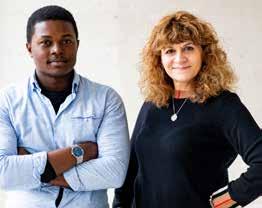
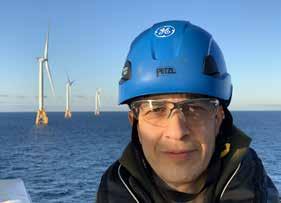
Human health and bioengineering
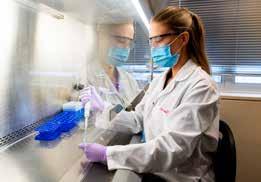
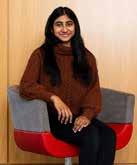
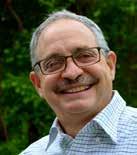
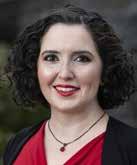
Associate Professor Ayse Asatekin (ChBE) and a team from Massachusetts General Hospital bioengineered a hydrogel that allows wounds to be treated with significantly less pain. Researchers from Stern Family Professor of Engineering David Kaplan’s (BME) lab and the University of Oxford reported that shingles infection may activate dormant neurological herpes viruses, causing inflammation and accumulation of Alzheimer’s associated proteins in the brain. Tiampo Family Assistant Professor Madeleine Oudin and senior Deepti Srinivasan (BME) investigated the bioelectric properties of cancer cells to alter those cells’ bioelectric signals— making the cancer less likely to spread.
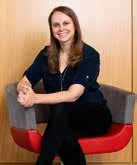 Ayse Asatekin
David Kaplan. Photo courtesy of Alix Kaplan
Madeleine Oudin Deepti Srinivasan
Babak Moaveni on an offshore wind turbine.
Photo courtesy of Babak Moaveni
Obafemi Jinadu and Karen Panetta
Ayse Asatekin
David Kaplan. Photo courtesy of Alix Kaplan
Madeleine Oudin Deepti Srinivasan
Babak Moaveni on an offshore wind turbine.
Photo courtesy of Babak Moaveni
Obafemi Jinadu and Karen Panetta
8 2023 Annual Report | School of Engineering
Tufts researcher in cellular agriculture at work in the lab
Human-technology interface
Associate Professor Valencia Koomson (ECE) detected racial disparities in pulse oximeters’ results. This year she continued work on developing pulse oximeters that address this critical shortcoming and engaged with politicians and media to advocate for action. A group of researchers including Assistant Teaching Professor Dave Miller and Professor of the Practice
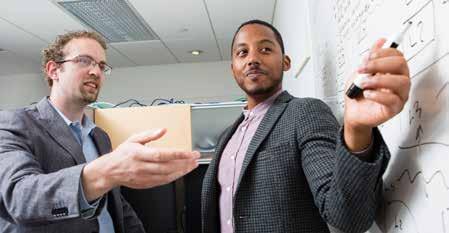
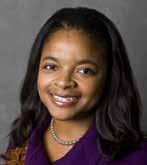
James Intriligator (ME) suggested that low-level conflicts in human-robot interactions can end in a middle ground if designers integrate conflict resolution mechanisms in the design of robotic systems instead of expecting coercion from the user or the device. Clare Boothe Luce Assistant Professor
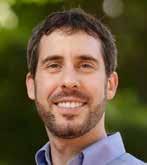
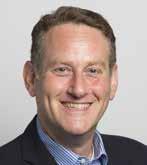
Aseema Mohanty’s (ECE) work on developing a highperformance visible photonic platform for the manipulation of large-scale quantum emitter arrays could lead to improvement in the implementation of quantum information systems. In Frank C. Doble Professor of Engineering Fiorenzo Omenetto’s (BME) Silklab, the team developed biopolymer-based sensors that glow when pathogens, toxins, or dangerous chemicals are present, and that can be printed on almost anything.
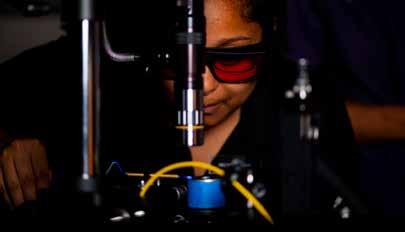
Intelligent systems
Professor and Department Chair Jeffrey Foster (CS) received an Amazon Research Award for his proposal to provide a toolkit for automated testing of the coding language Dafny. An ECE team including PhD candidate Cesar Gomes, alum Xuesi Chen, and Associate Professor Mark Hempstead developed a way to improve cache contention analysis with their program called Probabilistic Induction of Theft Evictions (PInTE). With contributions from Tufts faculty including Professor Eric Miller (ECE), researchers at the Center for Applied Brain and Cognitive Sciences are using VR headsets and bio-harnesses to simulate high-stress environments and gather data on how soldiers and first responders think.
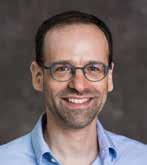
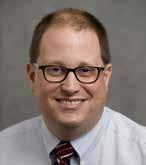
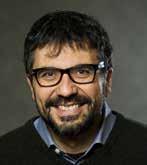 Fiorenzo Omenetto
Valencia Koomson
James Intriligator
Eric Miller
Dave Miller
Jeffrey Foster
Aseema Mohanty
Fiorenzo Omenetto
Valencia Koomson
James Intriligator
Eric Miller
Dave Miller
Jeffrey Foster
Aseema Mohanty
9 engineering.tufts.edu
Mark Hempstead, left, and Cesar Gomes, right
Learning science
Supported by an NSF grant, Research Associate Professor Merredith Portsmore , director of the Tufts Center for Engineering Education and Outreach (Tufts CEEO), and team worked to understand and improve engineering outreach programs for elementary school students. Tufts’ Justice-based Engineering and Data Science Initiative focused on making meaningful, research-informed changes to the engineering curriculum that better reflect real-world conditions.
Engineering education across the School
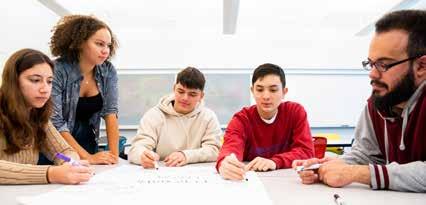
Assistant Professor Trevion Henderson (ME) aims to improve engineering education and foster diversity, equity, and inclusion through his research and teaching. Learn more at go.tufts.edu/henderson
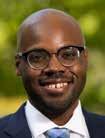
McDonnell Family Bridge Professor Milo Koretsky reflects on the growth of engineering education research. Learn more at go.tufts.edu/koretsky
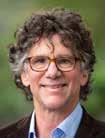
McDonnell Family Assistant Professor Greses Pérez (CEE) draws upon her research into the intersection of language and learning and her experiences as a woman in STEM to help open up the field of engineering. Learn more at go.tufts.edu/perez
Administered by Tufts CEEO, the Playful Engineering-Based Learning initiative provides educators and leaders with the resources to meaningfully integrate engineering exploration in their communities. Learn more at go.tufts.edu/pebl
Invention Disclosures
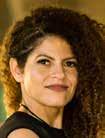 Trevion Henderson
Milo Koretsky
Greses Pérez
Trevion Henderson
Milo Koretsky
Greses Pérez
0 10 20 30 40 50 60 2023 2022 2021 2020 2019 2018 2017 2016 ■ Engineering ■ All other Tufts schools combined
Students simulate classroom activities redesigned through JEDI
Fiscal year 10 2023 Annual Report | School of Engineering
Faculty Recruitment
New or newly-promoted faculty who will begin teaching during this upcoming academic year include:
Megumi Ando, Assistant Professor in Computer Science: At Tufts, Megumi Ando will work on the theoretical foundations of anonymous communications. She was previously a lead cybersecurity research scientist at the MITRE Corporation.
Brian Aull, Professor of the Practice in Electrical and Computer Engineering: Brian Aull pursues research on photon counting image sensors based on the integration of silicon Geiger-mode avalanche photodiode arrays with alldigital CMOS readout circuits.
Emily Carlson, Assistant Teaching Professor in Electrical and Computer Engineering: Emily Carlson designs, simulates, and fabricates optical elements to improve the efficiency of thermophotovoltaics — solar cells that use heat to generate electricity.
Khaled ElMahgoub, Assistant Teaching Professor in Electrical and Computer Engineering: Khaled ElMahgoub’s research interests include software engineering, RFID systems, medical devices, sensors, channel coding, FDTD, antenna design, and numerical techniques.
Sunil Kumar, Professor in Electrical and Computer Engineering: Sunil Kumar is the new President of Tufts University. His research areas include performance evaluation and control of manufacturing systems, service operations, and communications networks.
Angela Lai, Assistant Teaching Professor in Biomedical Engineering: Angela Lai’s research background is specialized in blood-contacting medical devices and optimizing the interactions between biomaterials and blood to reduce thrombosis.
Yingjie Lao, Associate Professor* in Electrical and Computer Engineering: Yingjie Lao’s research interests include trusted AI, hardware security, VLSI architectures for machine learning and emerging cryptographic systems, cybersecurity, and robotics.
Graham Leverick, Assistant Professor in Chemical and Biological Engineering: Graham Leverick’s research focuses on leveraging electrolyte design to enable next-generation batteries and electrochemical devices, as well as carbon capture and utilization.
Vladimir Podolskii, Associate Professor in Computer Science: Vladimir Podolskii is a theoretical computer scientist whose main research interests are computational complexity, logical foundations of computer science, and min-plus geometry.
Paul Simmonds, Associate Professor* in Electrical and Computer Engineering: Paul Simmonds’ research interests include the synthesis of novel semiconductor nanostructures, spintronics, high mobility electron transport, and the integration of dissimilar materials.
Farshid Vahedifard, Professor and Berger Chair* in Civil and Environmental Engineering: Farshid Vahedifard develops transformative solutions for emerging issues related to climate-resilient communities and infrastructure systems while incorporating environmental justice.
Faculty Growth and Composition
* Pending administrative approval
0 20 40 60 80 100 120 140 2022-23 2021-22 2020-21 2019-20 2018-19 2017-18 2016-17 2015-16 ■ Tenured/Tenure Track Faculty ■ Professors of the Practice ■ Full-Time Lecturers ■ Teaching Faculty
11 engineering.tufts.edu
Advancement and Outreach
Development: The School of Engineering continued its fundraising success, raising over $16.8 million during fiscal year 2023. This was the sixth year in a row of achieving eight-figure philanthropic support for the school. Tufts successfully raised over $1.5 billion in its Brighter World campaign, with the School of Engineering raising $164.4 million of that total.
Corporate and Foundation Relations: The School of Engineering raised $2.5 million in corporate and foundation achievement during this past year. Thanks to a $450,000 gift from Kingsbury, Inc., future graduate scholars will study leading technology in offshore wind energy engineering under Professor of the Practice Eric Hines (CEE). Also this year, Amazon Robotics made a $150,000 gift to the Department of Mechanical Engineering to reduce barriers to entry into robotics for underrepresented groups.
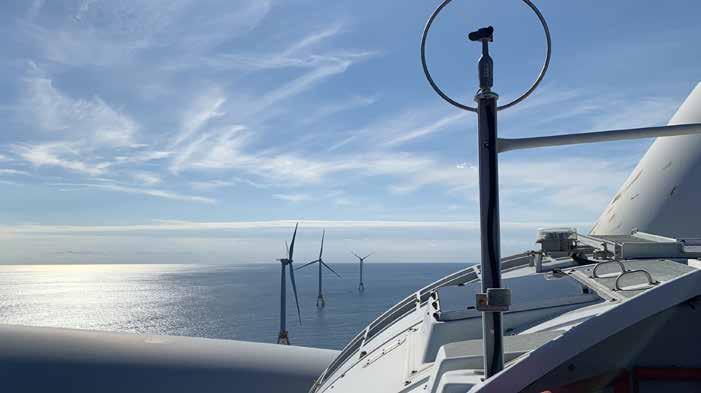
Alumni Outreach: The Office of Alumni Engagement partnered with Tufts Career Center to host an Engineering Alumni-Student Networking Night during Tufts’ Engineers Week celebrations. In May and June, Tufts welcomed more than 3,000 alumni back to campus for their first through 65th reunions. The Tufts Entrepreneurial Network hosted many activities this year, including webinars on compliance for growing business.
Career Center: The Tufts Career Center held nearly 1,400 appointments with engineering students during academic year 2022-2023. Now in its sixth year, the engineering co-op program educated more students than ever. Fifty-eight students took the co-op preparatory class.
As of December 2022, 97% of engineering undergraduates who graduated in May 2022 were employed, in graduate school, or participating in service or a fellowship.
12 2023 Annual Report | School of Engineering
Offshore wind turbines. Photo courtesy of Babak Moaveni
Highlights from Centers and Institutes
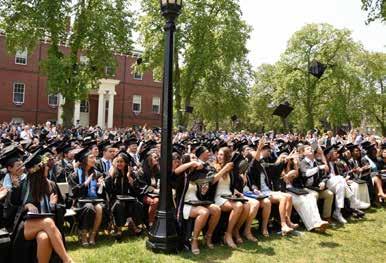
STEM Diversity: Under new director Grace Caldara’s leadership, the Tufts Center for STEM Diversity (CSD) continues to support the School of Engineering while collaborating with schools and divisions across the university. This year CSD staff developed and implemented a STEM-focused training on implicit bias in faculty hiring. The CSD team provided grant support for several National Science Foundation proposals and organized department get-togethers for Black, Indigenous, and People of Color (BIPOC) students. The CSD partnered with Tufts’ T-TRIPODS institute and with 13 faculty members as nine REU DIAMONDS students and seven TRIPODS students pursued summer research in 2022.
The Bridge to Engineering Success (BEST) program supports underrepresented, first-generation college students in the School of Engineering, serving 46 students during academic year 2022-2023. Seventeen students in the STEM Ambassadors program visited local high school classrooms to deliver STEM presentations. The BEST and STEM Ambassadors programs each received a 2023 Inspiring Programs in STEM Award from INSIGHT Into Diversity magazine.
Engineering Education and Outreach: This year, the Tufts Center for Engineering Education and Outreach (Tufts CEEO) continued to act as a hub of engineering education research, teaching, and outreach, both close to home and farther abroad. On the local level, Tufts CEEO members supported Malden High School students in building a community garden. When the Winter Hill Community Innovation School temporarily moved into Tufts facilities while its Somerville school building was under repair, Tufts CEEO stepped in to deliver engaging, relevant engineering programming for young students. With continued support from a LEGO Foundation grant, Tufts CEEO supported hands-on engineering programming for over 5,000 students from around the world and training for over 300 teachers.
Research topics this year included investigating the pedagogy of outreach programs, strategies for online teacher learning, makerspaces and community gardens, and more. With the growth of artificial intelligence and machine learning, Tufts CEEO is researching how these tools can support pre-college students. The Justice-based Engineering and Data Science Initiative research project continued to integrate data science and social justice in the first-year Introduction to Computing for Engineering course.
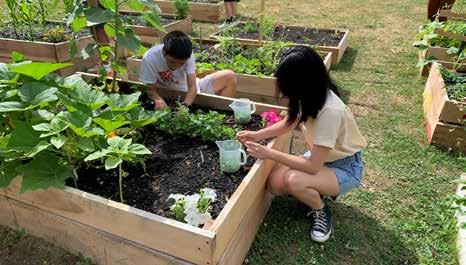
13 engineering.tufts.edu
Students working in the Malden Community Garden Engineering students celebrate during the School’s 2023 Phase II Commencement ceremony
Innovation, Management, and Entrepreneurship: Tufts Gordon Institute (TGI) and the School of Engineering planned the launch of several new academic programs, including an MS and a Certificate in Technology Management and Leadership (TML) — both offered fully online with the option of on-campus immersive experiences — and a new minor in Foundations for Future Leadership. The MSTML will welcome its first cohort of students in Spring 2024, and the new minor became available to undergraduates this year with the aim of providing students with the skills and mindset to tackle the complex challenges society faces.
The Derby Entrepreneurship Center at Tufts (DEC) hosted the 2023 Tufts $100k New Ventures Competition as a hybrid event with a virtual audience and several in-person watch parties in Joyce Cummings Center. The DEC continued to support the Tufts Venture Accelerator, which helps entrepreneurs who are building a venture make rapid progress throughout the summer. This year, 100 students graduated with a minor in either Entrepreneurship (ENT) or Entrepreneurship for Social Impact (ENTSI). Going forward, students seeking the ENT minor now have increased flexibility in their course options.
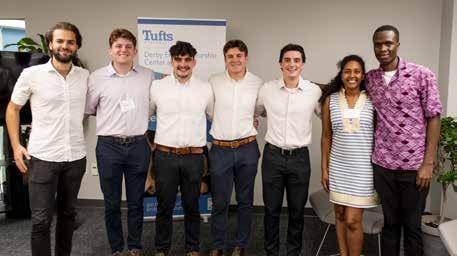
A transformational gift of $4 million from Tufts alum Chuck Auster, A73, Chairman of the DEC Board of Advisors, will create the Auster Center for Applied Innovation Research (AIR). The AIR Center will promote innovation in solving complex societal challenges through a transdisciplinary approach that spans social sciences, natural sciences, and technology for the public good.
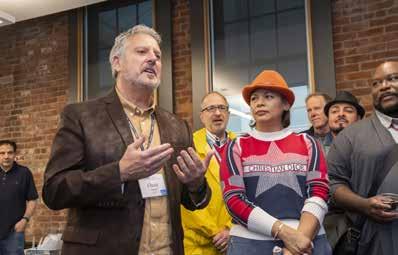
Applied Brain and Cognitive Sciences: The Center for Applied Brain and Cognitive Sciences (CABCS) builds interdisciplinary research teams to conduct state-of-the-art research and development aimed at measuring, predicting, and enhancing cognitive capabilities and human-system interactions for individuals and teams working in high-stakes environments. CABCS is engaged in multiple projects involving Tufts faculty, postdocs, graduate students, undergraduates, and staff.
This year’s highlights include expanding on human performance predictive models and decision support tools to incorporate seven contextual stressors and seven cognitive and physical performance outcomes; discovering that non-invasive galvanic vestibular neurostimulation can transfer navigation instructions to humans; and evaluating a new wearable metabolic status monitor during exercise, leveraging thermoelectric generators. Researchers also quantified the core features of human traits to predict cognitive and physical performance outcomes, and leveraged omnidirectional treadmills to quantify attentional tradeoffs between ambulation and effective augmented reality use.
Students competed in the annual $100k New Ventures Competition
14 2023 Annual Report | School of Engineering
Alum Chuck Auster’s, left, gift will launch the AIR Center
Artificial Intelligence: The Tufts Institute for Artificial Intelligence (TIAI) brings together engineers, social scientists, biologists, clinicians, and ethicists from across the university to develop and advance the field of integrated artificial intelligence. To capitalize on leading Tufts expertise, TIAI is pursuing work in three key areas: learning and education, personalized nutrition, and personalized therapeutics combating anti-microbial resistance.
Cellular Agriculture: The Tufts Center for Cellular Agriculture (TUCCA) is leading the effort to overcome fundamental technical challenges in the field, develop standards, and share knowledge. The USDA National Institute for Cellular Agriculture at Tufts University seeks to develop a cell-based meat platform by integration of physical, biological, and social sciences; innovate the food supply chain to enhance food sustainability, nutrition, and security; and train the next generation of professionals.
Data Science: The T-TRIPODS institute focuses interdisciplinary efforts across multiple Tufts departments and campuses to advance the understanding of foundations of data science. The project convenes teams of mathematicians, computer scientists, statisticians, and electrical engineers to address timely questions and solve important problems on the frontiers of data science. The Data Intensive Studies Center (DISC) enables multi-disciplinary excellence in data science scholarship and education at Tufts University.
Learning Science: The Institute for Research on Learning and Instruction (IRLI) introduces and sustains scholarly research on learning and instruction within departments, programs, and schools at Tufts. It is one of the first university-level structures working to integrate the historically distinct missions of research and teaching.
Materials Science: The Tufts Interdisciplinary Advanced Materials (TIAMAT) Center unifies more than four dozen Tufts faculty members whose technical interests include materials science and engineering. Researchers produce novel and highly innovative research that advances basic and applied knowledge in materials.
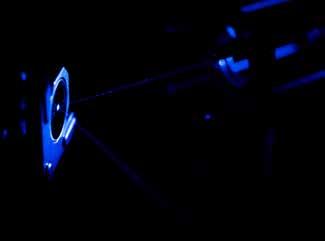
Neural Science and Disease: The Initiative for Neural Science, Disease & Engineering (INSciDE@ Tufts) is an interdisciplinary center with multi-scale focus on brain and peripheral nervous system structure, function, and disease. It integrates bioengineering, stem cell biology, and regenerative medicine with technological innovation and therapeutic approaches.
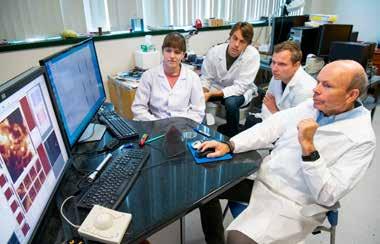
15 engineering.tufts.edu
Infrastructure Development
In 2022, Tufts University opened the new Joyce Cummings Center and, with the MBTA, celebrated the launch of the Medford/Tufts station on the newly expanded Green Line. In 2023, Halligan Hall is undergoing renovations that are expected to finish next year. The Science and Technology Center was recently outfitted with lab renovations for Assistant Professors Nathaniel Eagan (ChBE) and Nisha Iyer (BME). Infrastructure updates and teaching space renovations to the building are underway during summer 2023.
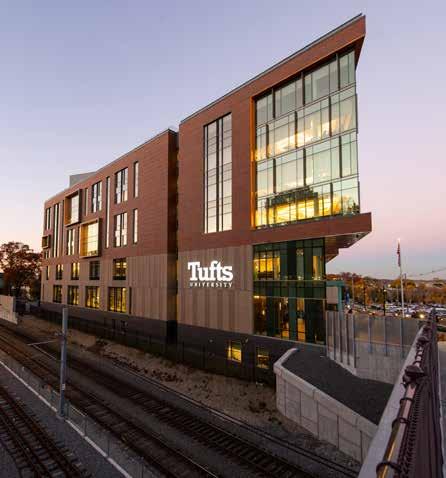
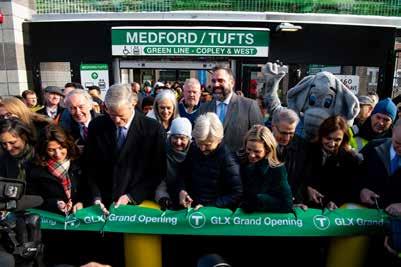
In the Science and Engineering Complex, research wing shell space is now being fitted out with an anticipated completion date of fall 2024. In the same building, construction was completed on the Monte and Jane Haymon Boardroom, a stateof-the-art conference room in Robinson Hall made possible by a generous gift from the Haymon Family Fund. Looking ahead to the future, the University is planning a new residence hall that will provide more housing for undergraduate students upon its expected completion in 2026.
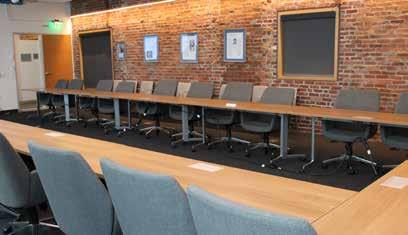
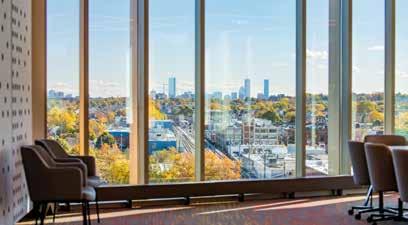 Officials from Tufts, Somerville, the MBTA, and the Massachusetts governor’s office and congressional delegation open the new MBTA stop
Exterior of Joyce Cummings Center, including the new Green Line tracks View of the Boston skyline from inside Joyce Cummings Center
Officials from Tufts, Somerville, the MBTA, and the Massachusetts governor’s office and congressional delegation open the new MBTA stop
Exterior of Joyce Cummings Center, including the new Green Line tracks View of the Boston skyline from inside Joyce Cummings Center
16 2023 Annual Report | School of Engineering
The Monte and Jane Haymon Boardroom in Robinson Hall
Inspirational Gifts
» $4 million blended gift from a member of the Class of 1973 to create a new academic center
» $3 million estate gift from members of the Class of 1972 and past Tufts parents to support financial aid and create an endowed professorship
» $1.4 million estate gift from a member of the Class of 1976 to support financial aid for Tufts engineering students
» $1.2 million gift from a member of the Class of 1976 and past Tuft parent to create a new endowed professorship
» $918,000 gift from a member of the Class of 1949 to support financial aid for Tufts engineering students
» $500,000 gift from a member of the Class of 1981 to support the Ellis Oval Facility project
» $473,000 estate gift from a member of the Class of 1959 to support financial aid for Tufts engineering students
» $450,000 gift to support graduate fellowships in the offshore wind energy engineering program
» $360,000 estate gift from an anonymous donor to provide general School of Engineering support
» $312,000 gift from a Tufts friend to support Stern Family Professor David Kaplan’s cellular agriculture research
» $300,000 gift to support educational access and diversity efforts within the Department of Computer Science
» $220,00 gift from anonymous donors to support Tufts Center for Engineering Education and Outreach academic programs and the School of Engineering annual fund
» $150,000 gift from a member of the Class of 1970 to create a new endowed fund supporting public health engineering
» $150,000 gift from current Tufts parents to support the School of Engineering annual fund
Science and Engineering Complex
Anderson Hall, Room 105
200 College Avenue, Medford, MA 02155
Learn more about the School of Engineering at engineering.tufts.edu
Find alumni news and resources at alumniandfriends.tufts.edu
Connect for recruiting, education, and research at engineering.tufts.edu/industry
Support future Jumbos at giving.tufts.edu
Find us on Facebook, Twitter, and Instagram at @TuftsEngineer














 Ayse Asatekin
Karen Panetta
Eric Miller
Jivko Sinapov
Christos Georgakis
Brian Timko
Robert White
Liping Liu
Matthias Scheutz
Ayse Asatekin
Karen Panetta
Eric Miller
Jivko Sinapov
Christos Georgakis
Brian Timko
Robert White
Liping Liu
Matthias Scheutz












 Remco Chang
Jeffrey Hopwood
Jonathan Lamontagne
James Van Deventer
Jack Germaine
Madeleine Oudin
Matthew Panzer
Steven Chapra
Prashant Deshlahra
Srivalleesha Mallidi
Irene Georgakoudi
Chris Swan
Remco Chang
Jeffrey Hopwood
Jonathan Lamontagne
James Van Deventer
Jack Germaine
Madeleine Oudin
Matthew Panzer
Steven Chapra
Prashant Deshlahra
Srivalleesha Mallidi
Irene Georgakoudi
Chris Swan




 Haneen Abderrazzaq
Monsurat Olaosebikan
Jonathan Wilde
Glenn Bell
Haneen Abderrazzaq
Monsurat Olaosebikan
Jonathan Wilde
Glenn Bell









 Ayse Asatekin
David Kaplan. Photo courtesy of Alix Kaplan
Madeleine Oudin Deepti Srinivasan
Babak Moaveni on an offshore wind turbine.
Photo courtesy of Babak Moaveni
Obafemi Jinadu and Karen Panetta
Ayse Asatekin
David Kaplan. Photo courtesy of Alix Kaplan
Madeleine Oudin Deepti Srinivasan
Babak Moaveni on an offshore wind turbine.
Photo courtesy of Babak Moaveni
Obafemi Jinadu and Karen Panetta







 Fiorenzo Omenetto
Valencia Koomson
James Intriligator
Eric Miller
Dave Miller
Jeffrey Foster
Aseema Mohanty
Fiorenzo Omenetto
Valencia Koomson
James Intriligator
Eric Miller
Dave Miller
Jeffrey Foster
Aseema Mohanty



 Trevion Henderson
Milo Koretsky
Greses Pérez
Trevion Henderson
Milo Koretsky
Greses Pérez










 Officials from Tufts, Somerville, the MBTA, and the Massachusetts governor’s office and congressional delegation open the new MBTA stop
Exterior of Joyce Cummings Center, including the new Green Line tracks View of the Boston skyline from inside Joyce Cummings Center
Officials from Tufts, Somerville, the MBTA, and the Massachusetts governor’s office and congressional delegation open the new MBTA stop
Exterior of Joyce Cummings Center, including the new Green Line tracks View of the Boston skyline from inside Joyce Cummings Center